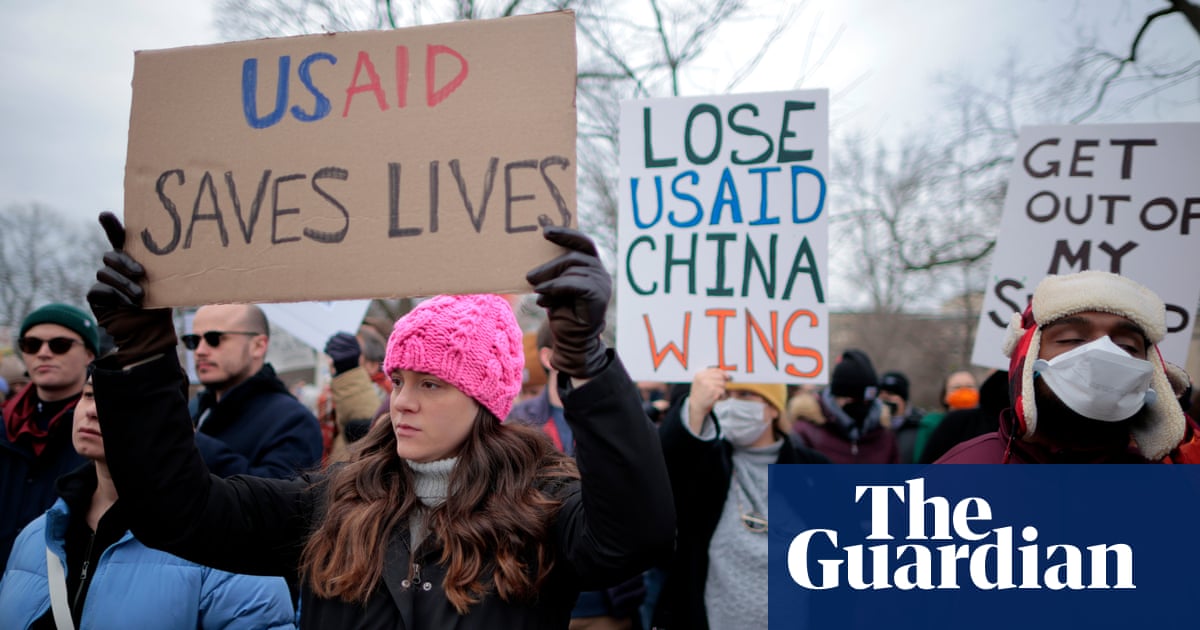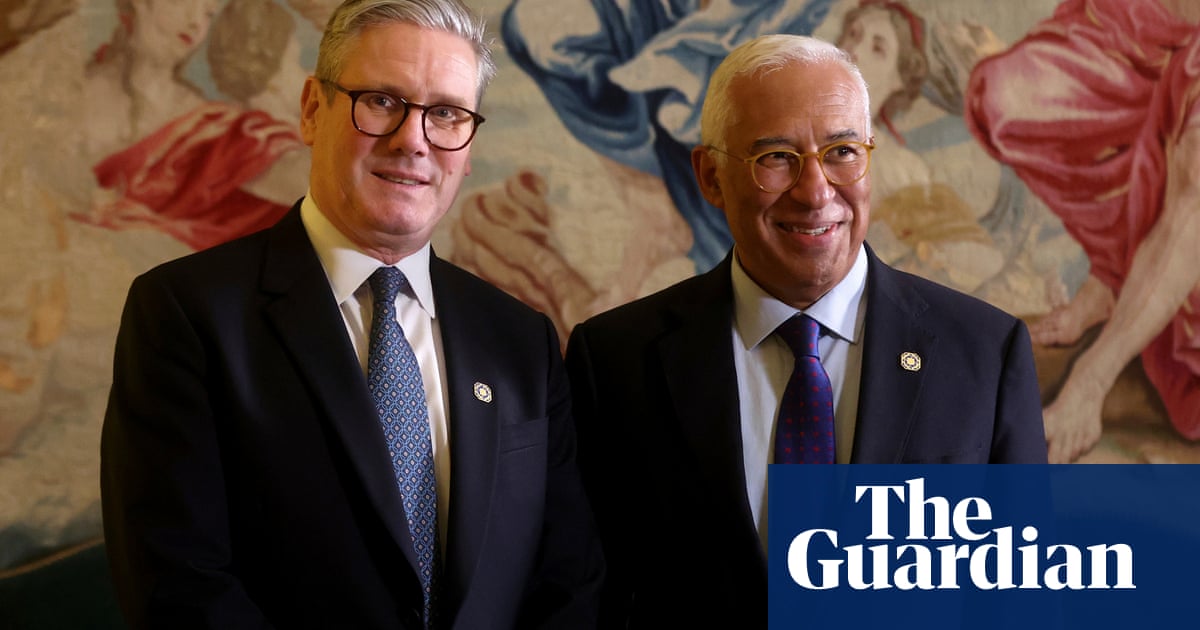The story of Sophocles’ rebel princess is clearly crossed with that of Shamima Begum’s stripped citizenship in this participatory production, written and directed by Alexander Raptotasios. Esmeh (Hanna Khogali), is a formerly radicalised Islamic State bride, groomed at the age of 14, now stranded in Syria, her British citizenship revoked. In Britain, her sister, Antiya (Hiba Medina), is staging a protest-to-the-death against an intransigent government to get Esmeh home.
The stage, designed by Marco Turcich, has shades of a Greek debating chamber, with a white platform and lectern, but with added screens for scrolling news reports, the floor alternately a TV studio and the House of Commons where the home secretary (Phil Cheadle) defends the banishing of Esmeh into stateless exile.
We, the audience, are given a voting keypad and become citizens of the polis, of sorts, exercising our right to vote on ethical issues arising from the drama, which is often paused so that we can answer multiple choice questions (anything from “Should a minor be held accountable for her actions?” to “What do you want out of this [drama]?”)
It is original but the questions are broad brush, leading to a flashing assortment of pie-charts but not followed through. The voting sits outside the outcome of the story too, and is a lesser consequential adjunct oozing gameshow energy. The pauses come to feel like interruptions to the drama, which is piecemeal, and stiffly delivered between political debates and newsreels, never quite given the chance to come to the boil.
Antiya stages a hunger strike and butts heads with the home secretary whose son (Ali Hadji-Heshmati) is having a very public relationship with her, in a less credible plot twist. There is an Alexa-style figure in Ty (Sorcha Brooks), a government adviser who sounds more android than human. She speaks of the home secretary’s rising or falling popularity in percentages, as well as posing questions to the audience needlessly and giving cod philosophical monologues (“What is a man?”).
The drama, sandwiched between it all, has strong echoes of Kamila Shamsie’s Women’s prize-winning novel, Home Fire, and its central contention – between state law and what Sophocles deemed “divine” law but which might in our age be classed as universal human rights – is transposed well.
It is a shame it feels so clunky with many extraneous parts. The immersive elements ironically push you out of the drama. When the story of the rebel sister is allowed to breathe, it engages.
Article by:Source: Arifa Akbar

![Antigone [on strike] review – shades of Shamima Begum as Sophocles’s rebel royal is exiled | Theatre](https://i.guim.co.uk/img/media/478b20bd05c2b42eba97f4080ff2e8c4f6618f33/0_409_6720_4032/master/6720.jpg?width=1200&height=630&quality=85&auto=format&fit=crop&overlay-align=bottom%2Cleft&overlay-width=100p&overlay-base64=L2ltZy9zdGF0aWMvb3ZlcmxheXMvdGctcmV2aWV3LTMucG5n&enable=upscale&s=d14a0aaa33313118401371153c9e613f)










